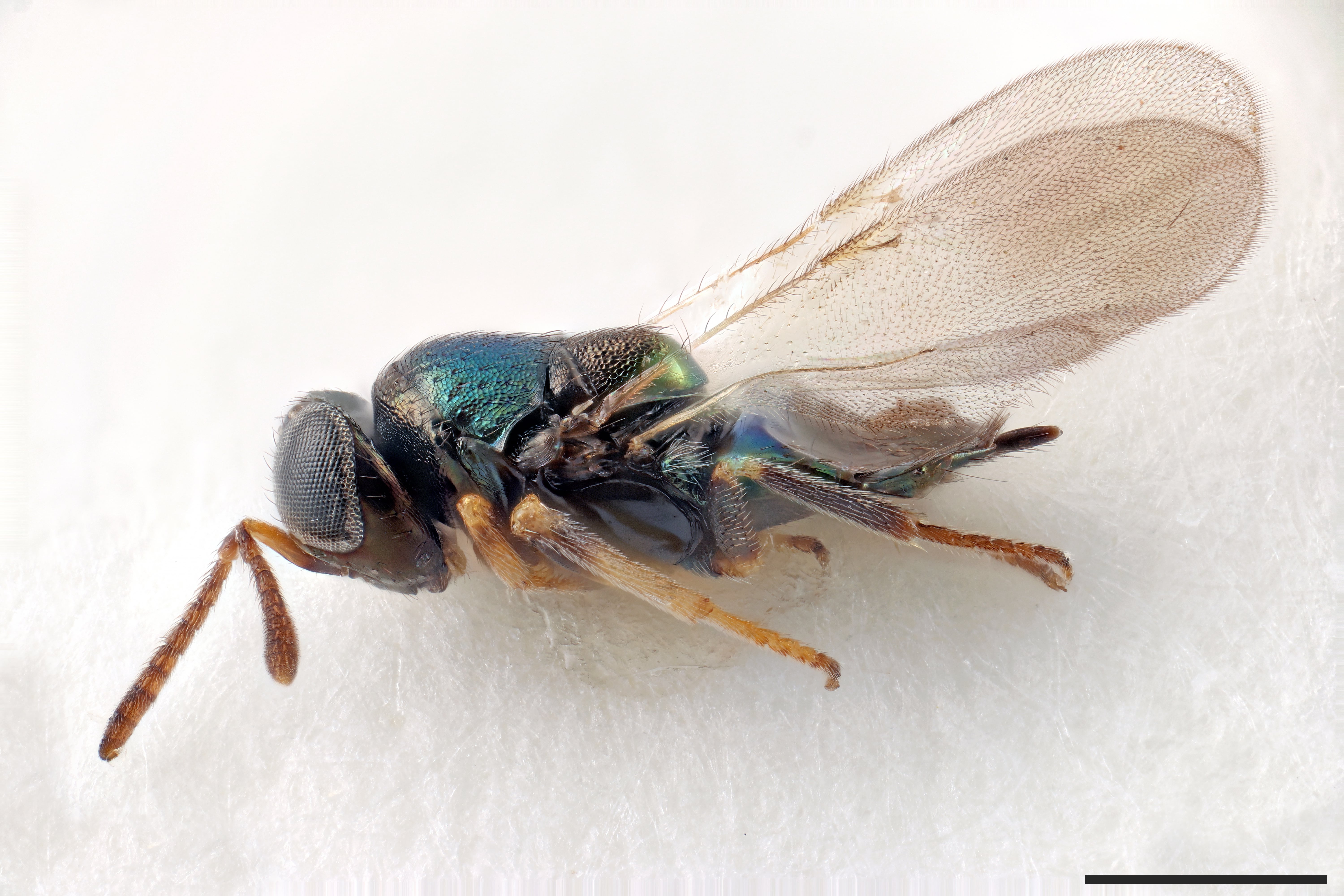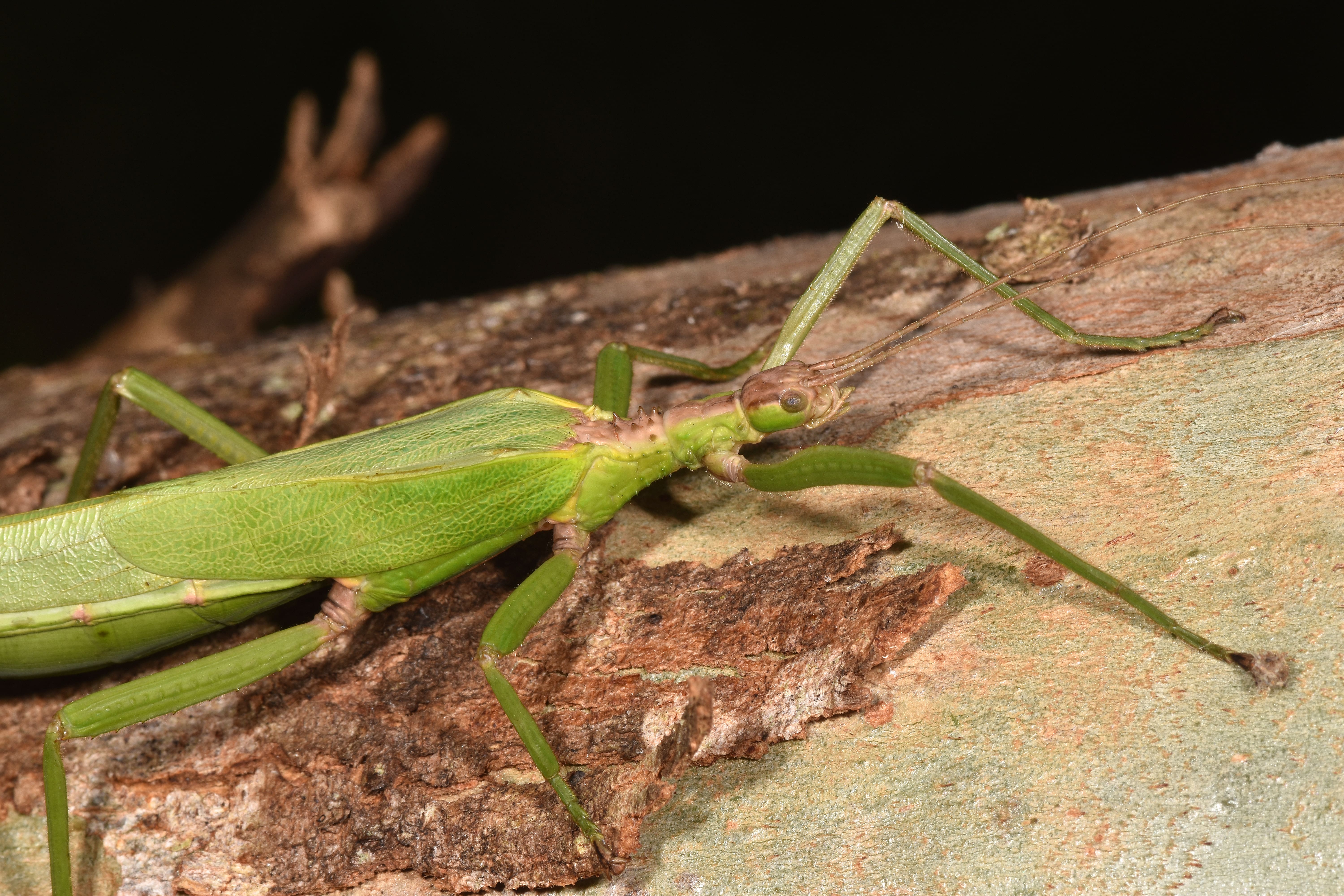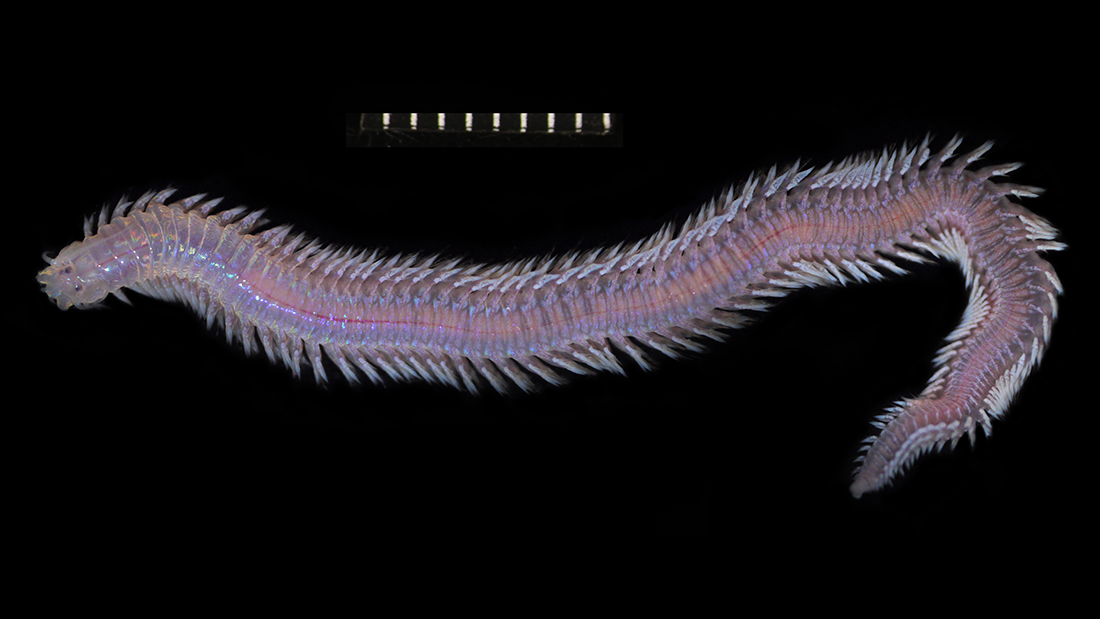New species are found every year, some are hiding in plain sight, some are camouflaged into the world around them, and some have been identified after painstaking hard work and genetic analysis. The team at the Natural History Museum London has named 815 new species this year, making 2022’s 351 species look a little paltry in comparison.
The stars of this year’s lists have to be the wasps, numbering 619 of the 815 new species described. An entire genus has even been given the name Dalek to celebrate the 60th anniversary of the popular British science fiction series Doctor Who.

A new species of wasp (Dalek nationi) from Costa Rica named after the Doctor Who villains the Daleks, and their creator Terry Nation
Image Credit: ©John Noyes/Natural History Museum London
Not unlike something from a sci-fi episode, most of the new species belong to the group known as the Encyrtidae, a parasitic wasp group that typically lays their eggs inside or onto unsuspecting host species.
“In the past 60 years or so, three species of Encyrtidae have been incredibly important. One in preventing the possible starvation of up to 300 million people in Africa, a second preventing the rainforest from destruction in Thailand, and another the collapse of the economy of Togo,” said Dr John Noyes, Museum’s Scientific Associate and author of many studies on the new wasp species in a statement sent to IFLScience.
Wasps weren’t the only insects to join the list, as 58 new species of beetles were also named, including four species of long-snouted weevils from South Africa. One surprising addition to the invertebrates this year was a stick insect found on the side of a bin named Micropodacanthus tweedae.

Micropodacanthus tweedae was found on the side of a dustbin where scientists think it may have been blown out of a tree.
Image Credit: ©Paul Brock/Natural History Museum London
On the vertebrate side, there have been 24 new species of frogs, a gecko from Australia that can shoot goo from its tail, a snake species, and two fish. Not to be left out, the team has also found 15 new species of algae from Australia as well as a new species of birch tree from China.
The fossil record has also yielded some new species this year, with the most exciting example being Kumimanu fordycei, the largest species of penguin ever known to live on Earth. A dinosaur from the Isle of Wight was also unearthed, thought to have lived 140 million years ago; the species of ankylosaur was named Vectipelta barretti after the Museum’s Professor Paul Barrett.

This polychaete worm was discovered on the carcass of a whale off the coast of Byron Bay, Australia
Image Credit: ©Georgieva et al. 2023/Natural History Museum London
Also making it onto this year’s lists are three trilobites, fossil turtles, and an ancient swimming creature called Anomalocaris dalyae which roamed the seas 500 million years ago and might have been the largest predator to have been living at that time.
Not exclusive to zoology and botany, the list also contains descriptions of 14 new meteorite samples and one new mineral species called Mikecoxite.
Which specimen from this years findings is your favorite?
Source Link: Natural History Museum Names 815 New-To-Science Species In Record-Breaking Year